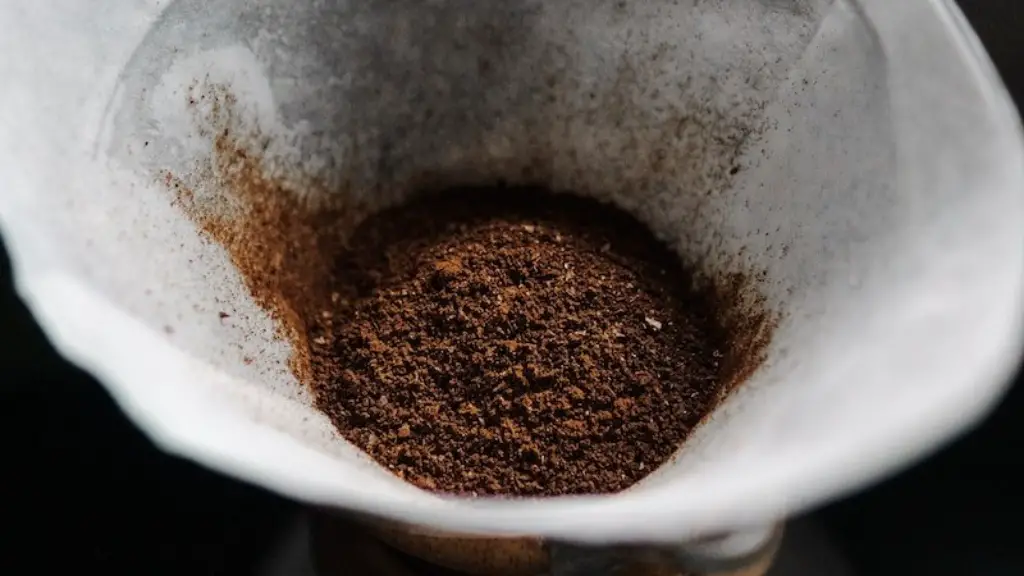Sometimes a cup of coffee can be the perfect start to your day but overindulging in caffeine can lead to negative effects such as headaches. But how common is it for coffee drinkers to experience headaches, and what causes them?
Although caffeine does have some proven positive effects, drinking too much coffee can cause headaches in some people. According to the National Institute of Health, there is a threshold at which caffeine can become a headache trigger, and it varies from person to person. For some, the trigger can be as low as just 100 milligrams, while others may need a much greater amount. It is also important to note that even regular caffeine users may become more sensitive to the effects over time.
Headaches caused by too much caffeine can be both primary and secondary. Primary headaches are the result of caffeine’s ability to affect your blood vessels, while secondary headaches originate when caffeine affects your nervous system. For example, when you are experiencing sleep deprivation, caffeine can worsen the state of your alertness, resulting in increased stress and concentration issues, which can lead to headaches.
It is recommended to drink no more than 4-5 cups of coffee per day, or around 400mg of caffeine. Besides headaches, overconsumption of caffeine can cause dehydration, increased heart rate, irritability and insomnia. Another side effect of consuming excessive amounts of caffeine is caffeine tolerance, where drinking the same amount of coffee no longer produces the same effect. It is also important to be aware that combining caffeine with certain medications can lead to longer-lasting and more severe headaches in some individuals.
To prevent headaches that are caused by consuming too much coffee, there are several steps that one can take. Firstly, reduce the amount of coffee you are ingesting, as well as the amount of sugar, cream and other additives that you put in your coffee. Secondly, opt for high quality coffee and make sure you drink plenty of water throughout the day — especially when you are feeling the effects of a caffeine-induced headache. Thirdly, keep track of how much caffeine you are consuming and make sure not to exceed the recommended limit. Lastly, take breaks throughout the day to relax and relieve stress, as this can help reduce the likelihood of headaches due to caffeine consumption.
Caffeine Withdrawal
For those who drink coffee regularly, going without it can lead to a series of symptoms that are collectively known as caffeine withdrawal. Some individuals may experience a headache, while others may suffer from fatigue, irritability, or difficulty concentrating. While it is not necessarily dangerous to withdraw from caffeine, it is important to note that headaches caused by caffeine withdrawal can last for a few days, sometimes more if the individual is not prepared.
To ensure that you adequately prepare for caffeine withdrawal, it is essential to reduce your caffeine intake gradually, over a period of about two to three weeks. This approach can help to reduce the severity of the withdrawal symptoms, as well as the chances of experiencing a headache. Additionally, it is important to drink plenty of water throughout the withdrawal period, and to make sure that you get enough rest and exercise regularly.
Caffeine withdrawal can be challenging for some individuals due to the wide range of symptoms they may experience. However, with an adequate level of preparation and resilience, it is possible to make it through the withdrawal period and move on to a better state of health.
Caffeine Tiredness Headache
Another type of headache that coffee drinkers may experience is what is known as the ‘caffeine-tiredness headache.’ This type of headache occurs when an individual drinks coffee and becomes tired soon thereafter, instead of feeling alert and energised. The headache is caused by a rebound effect caused by drinking too much caffeine, and is often accompanied by feelings of nausea and dizziness.
To help prevent this type of headache, it is important to remember that coffee is not a substitute for sleep and should not be used to boost your energy levels. Instead of having an espresso at midnight, it is advisable to get a good night’s sleep and start the day fresh and well-rested. Additionally, if you are feeling fatigued during the day, drink one cup of coffee, then switch to water for the rest of the day and remain mindful of your caffeine intake.
Furthermore, intermittent fasting whenever possible can help reduce your need for coffee as it can provide you with natural energy throughout the day. Eating healthy and nutrient-dense meals can also help to energise your body and give you fuel to last the day, instead of relying solely on coffee.
Caffeine Sensitivities
For some individuals, even small amounts of caffeine can cause an adverse reaction in their bodies and lead to headaches, irritability and other symptoms. If you think you may be sensitive to caffeine, it is important to seek medical advice and speak to your doctor about the possibility of testing for caffeine sensitivities and allergies. Once identified, you can then start working with your doctor to work out solutions to limit your caffeine intake and continue to enjoy the drinks you love.
In conclusion, it is important to be mindful of how much caffeine you are consuming as overindulging in coffee can result in headaches and other adverse reactions. Furthermore, it is also important to know how to properly prepare, handle and manage coffee withdrawals and sensitivities, as well as to remain aware of the other effects of excessive caffeine consumption.
Managing Caffeine Intake
Managing your caffeine intake is key for reducing the risk of headaches caused by too much coffee. Some people may find it easier to keep track of their caffeine intake by switching from coffee to decaf, or to limit themselves to only one or two caffeinated drinks per day. Upgrading to high quality coffee can also help because it usually contains fewer impurities and additives which can increase the risk of headaches.
In addition, there are other natural alternatives to caffeine such as green tea, matcha tea and chai tea, all of which possess their own unique set of health benefits and contain much lower levels of caffeine. Opting for an infused herbal tea can also be beneficial, as these can provide an energising boost without the need for caffeine.
Finally, learning to listen to your body is key when it comes to managing caffeine intake. Taking regular breaks throughout the day, getting adequate sleep, and engaging in regular physical activity can all help to reduce your dependence on caffeine while also helping to boost your energy.
Time of Intake & Duration
It is also important to consider the time of day at which you drink coffee and the duration of time it takes for it to be processed by your body. Caffeine is usually processed in about four to six hours, so if you are having trouble sleeping at night, it is best to avoid caffeine after mid-afternoon. Similarly, if you drink coffee in the morning, it is best to avoid any caffeinated drinks in the evening.
Furthermore, it is important to note that drinking coffee or other caffeinated beverages on an empty stomach can cause the body to absorb the caffeine much faster, increasing the potential for headaches and other adverse reactions.
In addition to considering the time of day at which you are consuming caffeine, it is also important to consider the duration of time over which you are doing so. If you are drinking coffee for an extended period of time, it is best to drink it in moderation and spread it out over the course of the day.
Additional Considerations
Besides the amount of caffeine you are ingesting, there are several other factors that can contribute to headaches. This includes dehydration, physical exhaustion, stress, and lack of sleep, which can all lead to headaches or exacerbate one’s sensitivity to caffeine.
It is also important to be aware of the additives and sweeteners that you are putting in your coffee, as these can cause headaches in some individuals. Furthermore, drinking alcohol can also be a contributing factor, as alcohol is known to be a diuretic and can cause dehydration, which can lead to headaches. Therefore, it is important to be aware of all possible contributors to headaches, not just coffee.
In conclusion, while coffee can be a great start to your day, it is important to remember that drinking too much can lead to headaches and other adverse reactions. This can be prevented by keeping track of your caffeine intake, remaining mindful of potential triggers, managing your coffee intake, and recognising the other possible contributors to headaches.





